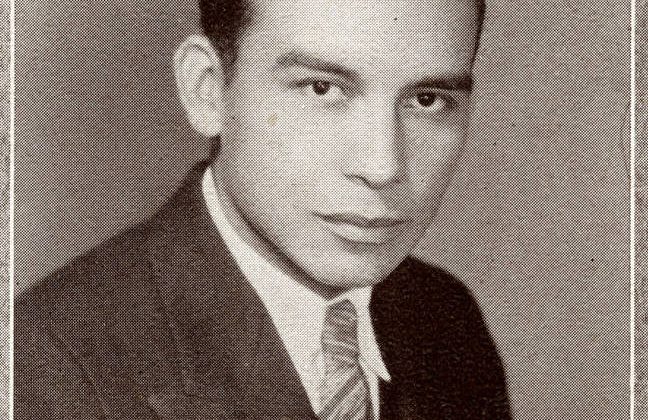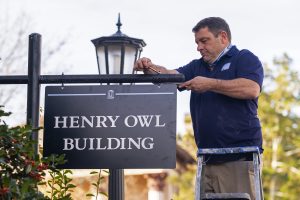Susan O'Rourke | December 6, 2021


We are excited to share that the Student Affairs Building, which houses UNC World View, has been renamed in honor of Henry Owl, a Cherokee historian, educator, activist, soldier, and “the first American Indian and the first person of color to enroll in the university.” The name change, which was supported by UNC’s Chancellor and the Board of Trustees, reflects the university’s commitment to honoring those who “represent the values that define the University: excellent and unwavering commitment to teaching, research and public service” and who “have traditionally been underrepresented on Carolina’s landscape.”
Henry Owl was a member of the Eastern Band of Cherokee Indians and grew up in western North Carolina. Following his academic and athletic success as an undergraduate at Lenoir College (where he “was the first Cherokee to graduate from a North Carolina college”), Owl enrolled in UNC-Chapel Hill. There, he “wrote his master’s thesis on the history of the Cherokee Indians in North Carolina.” Not long after, Carson Fisher reports, Owl became an advocate for Native voting rights following his personal experience of discrimination at the polls. When he tried to vote in one election, he was denied the opportunity based on assumed illiteracy and—once that had been summarily disproven with his UNC Master’s thesis—assertions that he was not a U.S. citizen because of his Cherokee identity. Owl’s perseverance in his fight for the right to vote received national attention and Congress subsequently “passed a law affirming that Cherokees in North Carolina were citizens and had the right to vote.”
For more on Henry Owl’s lifework and writing, check out Fisher’s full article for UNC University Archives, “Carolina Firsts: Henry Owl.”
We are proud that our building now honors an educator, scholar, and advocate for Indigenous rights.
